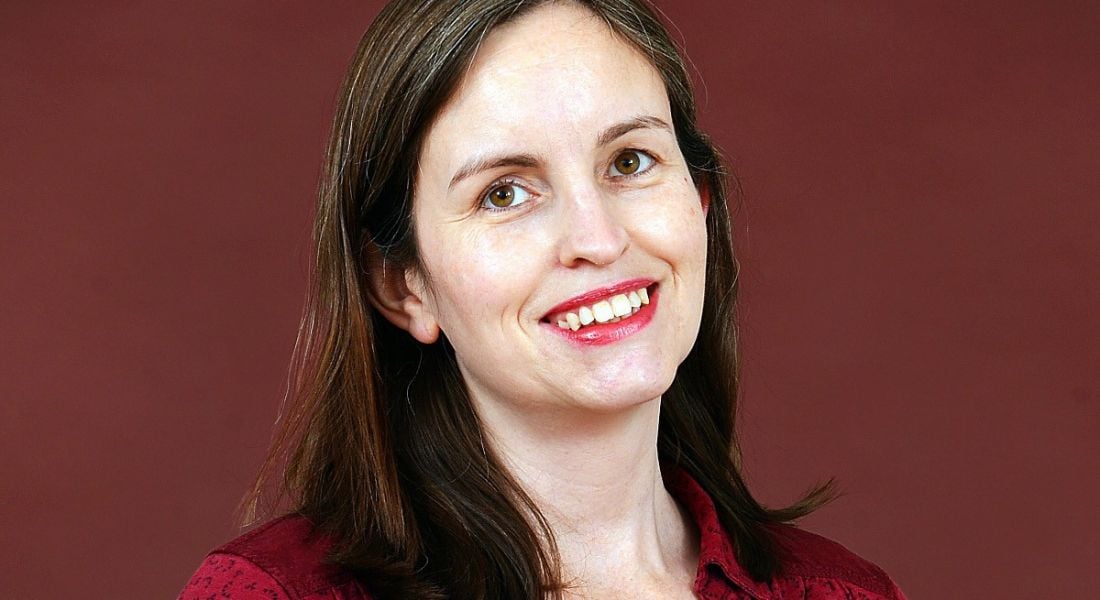Women Returners is bringing the concept of ‘returnships’ to Ireland, to support professional women returning to work after a career break. Elaine Russell and Julianne Miles explain why.
Do you ever wonder what happened to that really talented woman you used to work with, who left her job after her second child and seemed to fall off the radar?
If you spend any time at the school gates in Dublin, Cork or towns around Ireland, you will meet many women like her. You’ll find highly educated, experienced STEM professionals – engineers, project managers, software developers – standing alongside lawyers, accountants and consultants, all now at home looking after their children.
The numbers are significant. According to the most recent Irish census data, the workforce participation rate for women aged 35 to 55 is 72pc – 20pc lower than for men.
‘We’ve heard far too many stories of highly qualified women engineers and tech professionals being dismissed out of hand by recruitment agencies, and never making it past an initial CV screen’
The challenges for returners
Most of these mothers don’t plan to give up their careers for good. Studies have found that 75pc of women on career breaks intend to return to the workforce when the time is right.
At this time of skills shortages and a push for greater diversity, you’d think that employers would be welcoming them back with open arms. In STEM, there is both a talent and a diversity gap. As we near full employment in Ireland, attracting women back to work would appear to be an obvious part of the solution.
However, STEM women returning after a multi-year break continue to face significant barriers when they try to re-enter the job market. Employers typically see candidates without up-to-date skills and experience as too risky to bring into experienced hire roles. We’ve heard far too many stories of highly qualified women engineers and tech professionals being dismissed out of hand by recruitment agencies, and never making it past an initial CV screen if they apply directly for advertised roles.
‘Our social goal is to make taking an extended break a normal part of a 40- to 50-year career’
When their already-reduced professional self-confidence takes a further knock, many women returners decide that they’ll never be able to pick up their previous career, and take a lower-level role or decide to retrain.
Apart from the loss of technical professionals, this also exacerbates the gender pay gap. According to PwC research, last year, of those that come back, three in five move into a lower-skilled or lower-paid role than the job they had before, reducing earnings by up to a third.
This is a global issue, not just an Irish one. In 2012, we founded Women Returners in the UK, aiming to tackle this wasted potential, and we’ve recently launched in Ireland. Our social goal is to make taking an extended break a normal part of a 40- to 50-year career. After all, employees may need to pause their careers for many reasons besides childcare, such as caring for elderly relatives, illness and relocation.
Creating solutions for returners and employers
In the UK, we have succeeded in starting to change the conversation around returners. Employers in sectors from construction to telecoms to asset management are recognising that this high-calibre and motivated group can help to increase gender and age diversity, and fill talent gaps. As Julie Thornton, head of human resources at Tideway, the London infrastructure project, said: “We’ve learned to look past the gap to the skills.”
Central to this change of employer mindset has been the introduction of ‘returnships’: higher-level paid internships tailored to create a supported route back to mid- to senior-level roles for returning professionals. Returnships range from three to six months, with a strong possibility of an ongoing role at the end. The majority of participants are women who have taken a break for caring reasons; however, programmes are open to anyone who has taken a long career break.
Employers get access to an untapped, high-calibre candidate pool, with the opportunity of a built-in trial period to reduce the perceived risk. Returners take on professionally paid work using their existing skills and experience, and receive support from the employer in terms of training, mentoring and often coaching to enable them to rapidly rebuild their professional confidence and skills.
‘Without the return-to-work programme, I would never have had the confidence to apply for a change-of-career role, especially when I had received so many rejections because of my career break’
– LIZ CHRISTOPHER, O2
The UK returnship market has grown rapidly from three in 2014 to more than 30 in 2017, including STEM employers such as O2, Vodafone, Skanska and Fidelity International. Typically, the majority of returners are employed into ongoing roles at the company at the end of the programme. One example is O2, which recruited 12 women as part of its 2016 Career Returners programme, in its operations and technology teams. It made offers to 10 returners and hired eight into ongoing roles.
One of the O2 returners was Liz Christopher, a computer science graduate with a strong project management background who unsuccessfully applied for roles after a break to raise her young family. “The [O2] programme gave me an opportunity to experience being back at work, regain confidence and network.”
Christopher has now taken on a permanent role as a solution architect and said: “Without the return-to-work programme, I would never have had the confidence to apply for a change-of-career role, especially when I had received so many rejections because of my career break.”
Samina Malik has a degree in actuarial science and worked for more than a decade at Reuters and a mobile tech company before her 10-year break. Now back at O2 as a supplier manager, she said: “If it wasn’t for the programme I’d probably still be applying for jobs I’m over-qualified for and not even getting them.”
Judith Hunt, UK diversity and inclusion manager at O2 UK, described “the amazing talent of women looking to return to the workplace”.
The programme was so successful that it’s being re-run this year, alongside opening up permanent roles to returners with coaching support (what we call a ‘supported hiring’ model).
What next for Ireland?
We’re now aiming to take our learnings from the UK market to introduce returnships and other returner programmes into Ireland in a way that works for business and the returners.
If your organisation is concerned about skills gaps or diversity at mid to senior levels, encourage them to consider returners and the returnship model as a mutually beneficial way to target a valuable new group of talented employees.
By Elaine Russell and Julianne Miles
Elaine Russell is head of Women Returners in Ireland and Julianne Miles is the co-founder and managing director of Women Returners. Women Returners is a consulting, coaching and networking organisation that works with individuals and organisations to enable the return to work of experienced professionals after a long career break.




